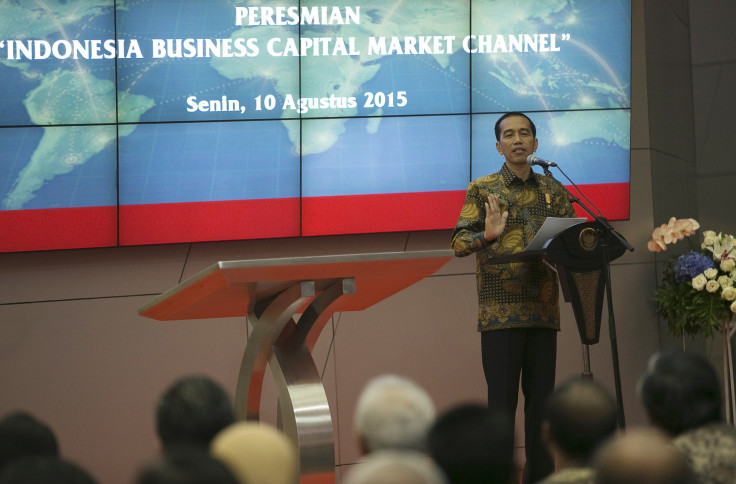Indonesia's President Reshuffles Economy Team As Growth Sags

JAKARTA (Reuters) - Indonesian President Joko Widodo put two experienced technocrats into key economic management posts on Wednesday in a cabinet reshuffle designed to reassure investors worried about a policy drift that has allowed growth to slip to a six-year low.
Widodo's choice of ministers defied expectations that his own party would compel him to make political appointments, a move that may surprise critics who say he has not been the robust leader they had hoped for when he took office last year.
Darmin Nasution, who was central bank governor from 2010 to 2013 and received his doctorate from the Sorbonne in Paris, was chosen to replace Sofyan Djalil as chief economic minister.
Nasution, 66, is widely respected in the business community and the financial markets, which may help shore up confidence as the rupiah languishes at its lowest levels against the U.S. dollar in more than 17 years.
Another unexpected choice was the appointment of Harvard-educated financial executive Thomas T. Lembong as trade minister. Chief executive of Quvat Management, a Singapore-based private equity firm that invests in Indonesia, Lembong previously worked at Deutsche Bank and Morgan Stanley.
Lembong was a senior vice president at the Indonesian Bank Restructuring Agency that was set up to revive the country's banking system after the Asian financial crisis in 1998.
Indonesia's gross domestic product grew at 4.67 percent in the second quarter, its slowest pace in six years. Since he took office last October, Widodo's government has passed a raft of measures aimed at boosting industry and consumption that have been criticized by investors as protectionist.
A source familiar with Widodo's reshuffle plan said he was keen to dispel impressions of weak leadership and policy muddle.
By appointing ministers with international experience and an external focus he may address concerns that his government too readily resorts to protectionism and is not wholly committed to nurturing foreign investment, the source said.
Widodo's meteoric rise from furniture businessman to president of the world's third-largest democracy, and the first to come from outside the political or military establishment, was widely seen as a watershed moment for Indonesia.
Supporters said the former governor of the capital, Jakarta, would root out corruption, promote people based on merit rather than connections and create an environment where a stalling economy could reignite and investment flourish.
Instead, he has been widely seen as sometimes out of his depth and struggling to get around entrenched vested interests.
POLITICAL PATRONS
Wellian Wiranto, an economist at OCBC bank, said new chief economics minister Darminshould have a strong understanding of both monetary and fiscal policy as former governor of the central bank and head of the tax office.
"There is thus a better chance of policy coordination," he Wiranto said. "At the end of the day, however, it will depend on whether he has the political air cover from his boss to do what he needs to do on the ground."
Four other cabinet appointments were announced on Wednesday.
In a sign of Widodo's growing independence from his political patrons, he accommodated only one additional political appointee from his own party, Pramono Anung as cabinet secretary, while the five others appointed were technocrats.
Widodo has faced severe public criticism over his perceived failure to stand up to vested interests and the demands of his party's chief, former President Megawati Sukarnoputri, who backed him in last year's election.
Luhut Pandjaitan, a former chief of special forces and close aide to Widodo, retained his role as chief of staff in the president's office and was also appointed as coordinating minister for security and political affairs.
© Copyright Thomson Reuters {{Year}}. All rights reserved.





















